The ZMINA Human Rights Centre and the Transatlantic Dialogue Centre (TDC) visited Uruguay and Chile to talk about Russia’s armed aggression against Ukraine, documented international crimes, and ways to achieve a just peace. ZMINA’s International Advocacy Manager Tetiana Zhukova, TDC’s Coordinator of the Programme for Cooperation with Spain and Latin America Oleksandr Slyvchuk, and TDC’s Project Manager Alina Rogach joined the visit.
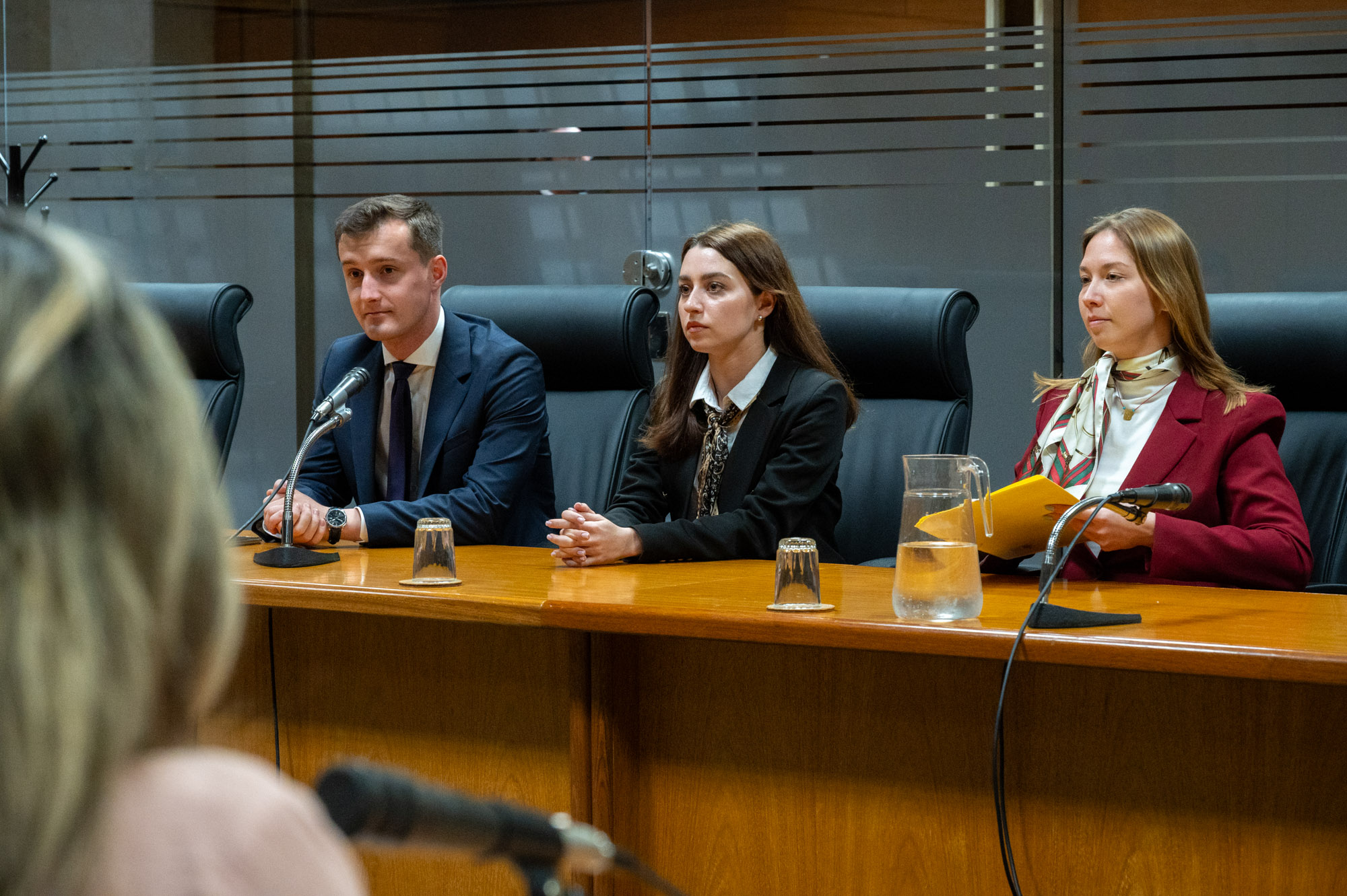 Photo: Oleksandr Slyvchuk, Alina Rogach, Tetiana Zhukova
Photo: Oleksandr Slyvchuk, Alina Rogach, Tetiana Zhukova
Uruguay is a small but respected democracy in the South American region, known for its consistent support of human rights, international law and stable rule of law.
Although Uruguay abstained from voting on UN General Assembly Resolution 68/262 in 2014, which reaffirmed Ukraine’s territorial integrity and recognised the annexation of Crimea as illegal, Uruguay’s position became clearer after the outbreak of full-scale war in 2022. The country supported key UN General Assembly resolutions in favour of Ukraine, including condemnation of the occupation of Ukrainian territories and voting for mechanisms to compensate for the damage caused by the war. Uruguay’s foreign policy has evolved from neutral caution to support for the international legal order.
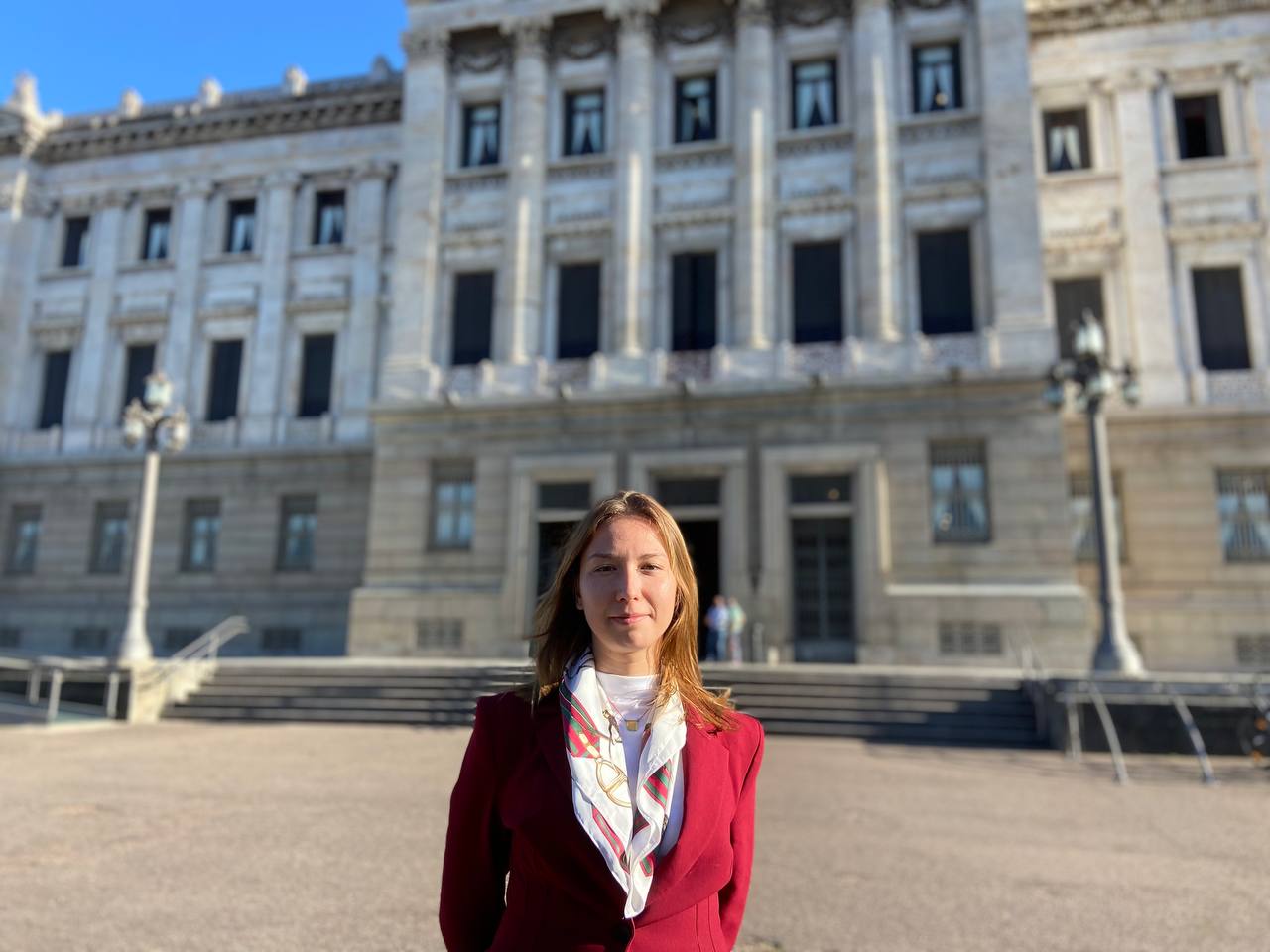 Photo: Tetiana Zhukova
Photo: Tetiana Zhukova
During the meetings, Tetyana Zhukova spoke about large-scale human rights violations in the Russian-occupied territories of Ukraine. She stressed that the Office of the Prosecutor General of Ukraine has already registered more than 161,000 war crimes and crimes of aggression, including illegal arrests, torture, abductions and persecution of local residents. She paid special attention to the issue of accountability: justice and restoration of victims’ rights should be key conditions for lasting peace.
Zhukova also handed over lists of civilian hostages – women, the elderly and local government officials – who are still in Russian custody, and stressed the need for their speedy release, writing letters to them and mentoring them.
Uruguay experienced similar human rights violations during the military dictatorship of 1973-1985, when hundreds of people were victims of enforced disappearances. This experience shaped their understanding of the importance of justice and the memory of victims.
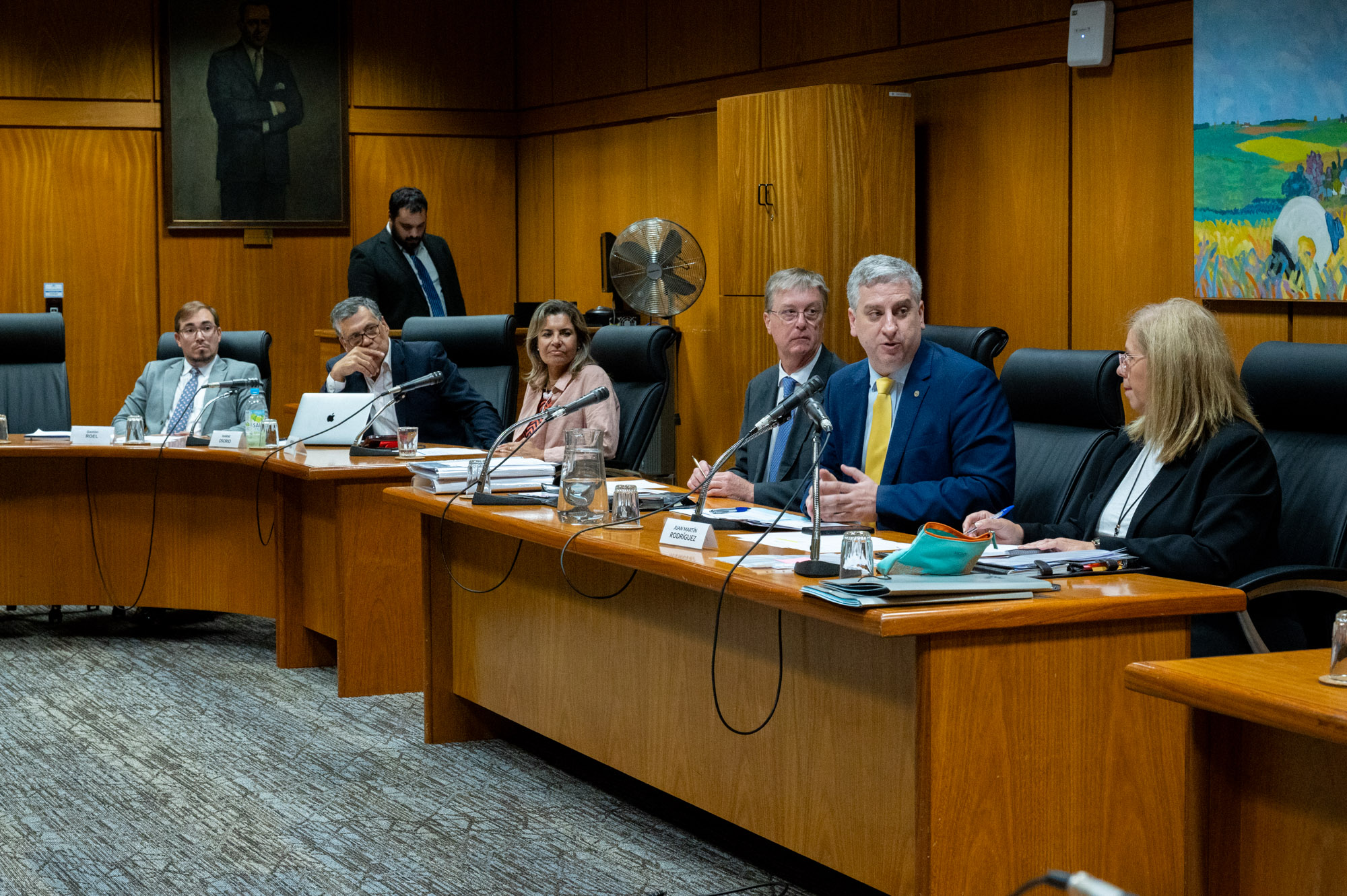 Photo: Foreign Affairs Commission of the Uruguayan Chamber of Deputies
Photo: Foreign Affairs Commission of the Uruguayan Chamber of Deputies
The activists met with the Vice President of Uruguay Carolina Cossé, Senator Javier Garcia, and addressed the Foreign Affairs Commission of the Uruguayan Chamber of Deputies.
The high-ranking officials expressed solidarity with Ukraine and reaffirmed their support for Ukraine’s sovereignty and respect for international law. For a small country like Uruguay, effective international law is a matter of survival. When power is placed above law, those without large armies are the first to suffer. That is why for Uruguay, supporting Ukraine is about protecting its own future in a world where the rules work for everyone – regardless of size, location or geopolitical importance.
 Photo: Meeting with Senator Javier Garcia
Photo: Meeting with Senator Javier Garcia
Ukraine’s experience in combating human rights violations has proved to be close to Uruguay, which has experienced disappearances and the need for justice. This creates a basis for mutual understanding and cooperation – not only at the level of political statements, but also in practical initiatives to protect human rights, which is what Ukrainian activists have been calling for.
During an advocacy trip to South America, representatives of the ZMINA Human Rights Centre and the Transatlantic Dialogue Centre (TDC) also visited Chile and discussed the situation with human rights violations in the territories of Ukraine temporarily occupied by Russia and ways to achieve sustainable peace. In particular, they discussed persecution, enforced disappearances, torture and the need to return illegally detained persons, as well as the importance of justice and preserving the memory of victims.
Chile, as a country with a deep experience in the fight for human rights after the dictatorship of Augusto Pinochet, demonstrates support for international law and human rights. Since the beginning of Russia’s full-scale invasion of Ukraine in 2022, Chile has supported UN General Assembly resolutions condemning the aggression and violation of Ukraine’s sovereignty.
Chile has its own experience of human rights violations during the military dictatorship of 1973-1990. During this period, more than 3,200 people were killed or disappeared, and tens of thousands were tortured and persecuted. This experience has shaped a deep understanding of the importance of justice and the memory of victims.
 Photo: Museum of Memory and Human Rights on the Crimes of the Military Dictatorship in Chile
Photo: Museum of Memory and Human Rights on the Crimes of the Military Dictatorship in Chile
Ukrainian activists met with the Foreign Affairs Commission of the Chamber of Deputies of Chile. Tetyana Zhukova shared documented information about the realities of life in the occupied territories, the systematic practice of persecuting active residents and opinion leaders under occupation, thousands of unjustifiably imprisoned civilians, and tens of thousands of deported children.
ZMINA’s international advocacy manager spoke about the tragedy in Kryvyi Rih that occurred just before the meeting with Chilean MPs, when a Russian missile killed 21 civilians, including 9 children. ‘More than 600 children have been killed because of Russia’s invasion of Ukraine – this is the count since 2022 alone. The Russian Federation targets civilian objects, kills people, and does not shy away from killing children. These are all international crimes, the number of which is already over 161,000,’ Zhukova said.
Ukrainian activists called for condemnation of Russia’s aggression against Ukraine and violations of international law. In response, Chilean deputies adopted a declaration condemning Russia’s numerous human rights violations and calling on the international community to put pressure on Russia to ensure that the victims of the war receive justice, children return home, and the war against Ukraine ends.
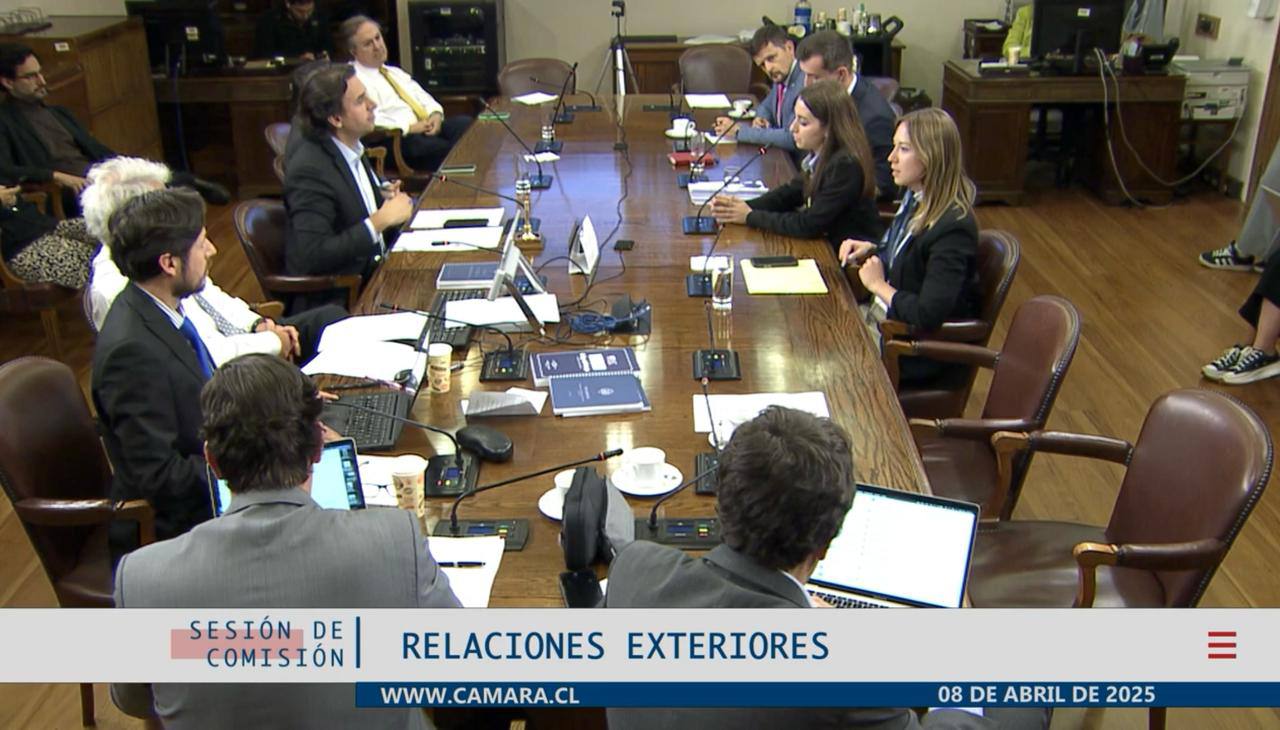 Photo: Speech at the Foreign Affairs Commission of the Chamber of Deputies of Chile
Photo: Speech at the Foreign Affairs Commission of the Chamber of Deputies of Chile
In addition, ZMINA and TDC met with the head of the Human Rights Department, Tomas Pascal, and the head of the Europe Department, Guillermo Bittelman Adriasola, at the Ministry of Foreign Affairs. The participants of the discussion shared their views on the current situation in Ukraine, human rights violations due to Russian aggression, as well as Chilean foreign policy.
Zhukova, Slyvchuk and Rogach also gave lectures at the University of Diego Portales and the University of Development, held meetings at the Diplomatic Academy, the National Academy of Political and Strategic Studies, Athena Lab and gave interviews to local media.
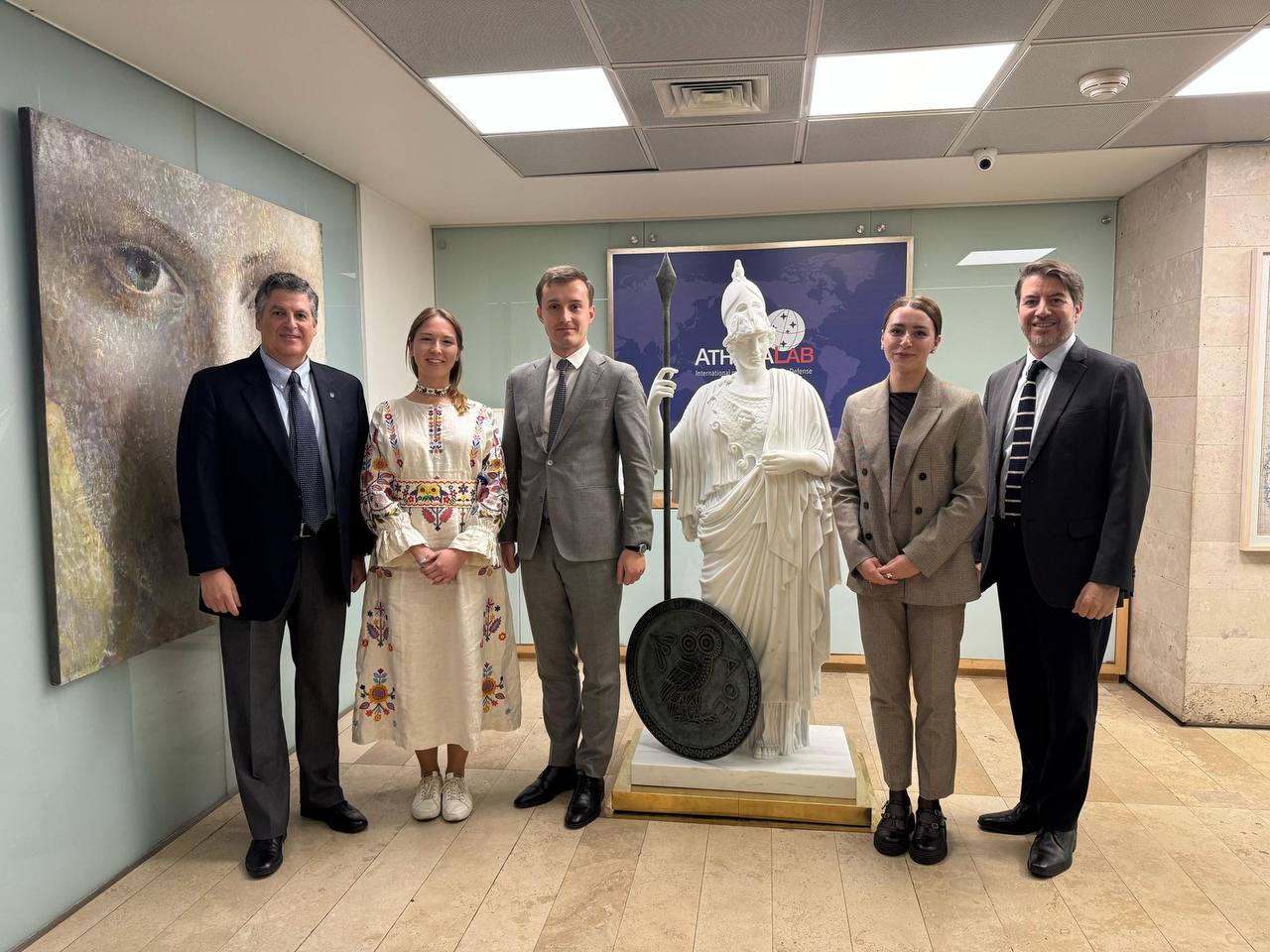 Photo: Meeting with Athena Lab representatives
Photo: Meeting with Athena Lab representatives
A meeting at the Ministry of Justice of Chile with the team responsible for the National Plan for the Search for Truth and Justice, the first state policy aimed at clarifying the fate of people reported missing during the military dictatorship, was very valuable. This experience is important for Ukraine in the context of the war, when thousands of people are missing in the occupied territories.
During the meetings in Chile, the similarities between the Ukrainian and Chilean experiences were discussed, including the need to document crimes, ensure justice and preserve the memory of victims. The Chilean partners expressed solidarity with Ukraine and assured their support for efforts to restore justice.
Ambassador of Ukraine to Chile Yurii Dyudin also met with representatives of ZMINA and TDC in Santiago. He stressed the importance of uniting diplomatic and non-governmental efforts to strengthen Ukraine’s voice in South America.
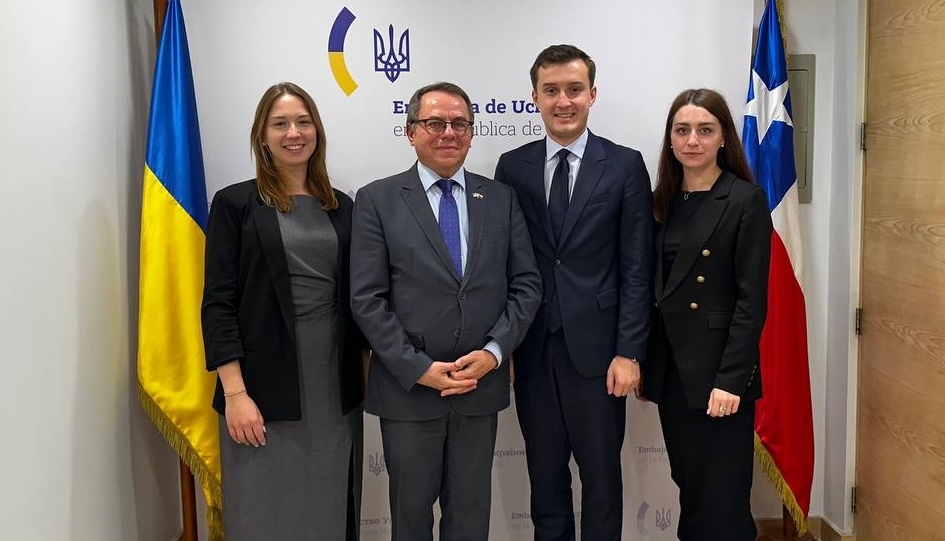 Photo: Meeting with the Ambassador of Ukraine to Chile
Photo: Meeting with the Ambassador of Ukraine to Chile
The shared experience of Chile and Ukraine in combating impunity and preserving the memory of victims of human rights violations creates a solid foundation for further cooperation in the field of human rights protection and restoration of justice.
The advocacy trip was organised by the Transatlantic Dialogue Centre (TDC) with the support of the International Renaissance Foundation.

